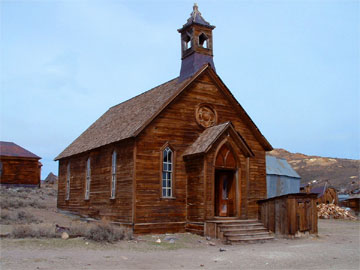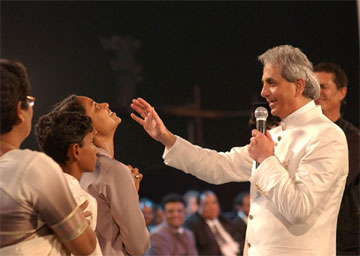|
planning goals Holy Spirit strategic planning God theology goal setting Bible Spirit
Planning and Goals:
Is There Room for the Holy Spirit?
by Rev. Dr. Mark D. Roberts
Copyright © 2008 by Mark D. Roberts
Note: You may download this resource at no cost, for personal use or for use in a Christian ministry, as long as you are not publishing it for sale. All I ask is that you give credit where credit is due. For all other uses, please contact me at mark@markdroberts.com. Thank you.
Planning and Goals: Is There Room for the Holy Spirit? Introduction
Part 1 of series: Planning and Goals: Is There Room for the Holy Spirit?
Permalink for this post / Permalink for this series
Can we make plans and formulate goals and still leave room for the Holy Spirit?
Should churches and other Christian organizations have formalized processes for clarifying vision and setting goals?
Can the Spirit of God speak to us in the midst of a goal-setting process? If so, how?
What can we do to let God guide our strategic planning processes?
I’ve been wrestling with these questions recently because I’m in the middle of a strategic planning and goal setting process with the organization in which I serve. Laity Lodge, where I am Senior Director and Scholar-in-Residence, is part of the H.E. Butt Foundation, a Christian ministry that includes a wide variety of ministries. In additional to Laity Lodge, an adult retreat center, the Foundation sponsors Laity Lodge Youth Camp, the Foundation Free Camps, Laity Lodge Family Camp, The High Calling of our Daily Work, and the Leadership Forum. The Foundation, including leaders from all our ministries, is working to define with greater clarity our plans and goals for the next five years.
Recently, I was asked to present some theological reflections at one of our strategic planning meetings. I thought I’d share some of my ideas on the questions with which I began this post. My basic question was: Is there room for the Holy Spirit in a planning and goal-setting process? When I finished those reflections, I thought it might be worth putting them up on my website. So here they are.
Before I share my reflections, I must confess from the outset that I’m rather skittish about strategic planning and goal setting in Christian organizations. I haven’t always been allergic to big goals, however. In fact, I was making goals for my life when most of my friends were busy watching Gilligan’s Island and The Brady Bunch. When I was in seventh grade, for example, I ran for class treasurer. I wasn’t particularly interested in managing our measly resources, but I did see school politics as a way of enriching my resumé so that I might someday be able to get a scholarship to college. While most kids ran for positions in student government because they wanted to enhance their popularity, I was executing my six-year plan to get into and afford a good college. (For the record, I lost the election for seventh-grade treasurer.)
My hesitation about goal setting comes from two different experiences. On the one hand, I have watched churches and Christian organizations get sidetracked by their goals. Sometimes they set goals that seem all too human and not very godly (like “grow to 1,000 members by 2006″). At other times churches can be so constricted by their established goals that their unable to value the new things God is doing among them.
On the other hand, I have seen how God’s plans for my life have overturned my own. My youthful plans for getting a scholarship to college did work out, after all. But, since then, God has been surprising me with his unexpected agenda for my life. While in grad school in New England, I planned to remain there as a professor, never imagining that I would be a pastor in California. While serving on the staff of Hollywood Presbyterian Church, I never planned to become the senior pastor of a suburban church, and had zero interest in going to Orange County. And the last time I made plans for my life, they included remaining as pastor of Irvine Presbyterian Church in Orange County at least until 2014, if not until my retirement somewhere around 2028.
 You can see why I’m not immediately enthusiastic about long-range planning. But, I must add that I have seen careful planning and goal-setting as a context in which the Holy Spirit has been active. There were times in my tenure at Irvine Presbyterian Church when planning was essential to God’s guidance of our church, especially when it came to major building projects or developments in our worship and outreach ministries. (Photo: The Administration Building of Irvine Presbyterian Church under construction in 2004, representing three years of planning.) You can see why I’m not immediately enthusiastic about long-range planning. But, I must add that I have seen careful planning and goal-setting as a context in which the Holy Spirit has been active. There were times in my tenure at Irvine Presbyterian Church when planning was essential to God’s guidance of our church, especially when it came to major building projects or developments in our worship and outreach ministries. (Photo: The Administration Building of Irvine Presbyterian Church under construction in 2004, representing three years of planning.)
So, if we allow that the Spirit of God can guide us through strategic planning and goal setting, when we surely want to know how we can allow this to happen. What can we do to foster an environment in which our goals are truly God’s goals for us? How can we pay attention to the Holy Spirit as we go about the business of strategic planning?
Beginning with my next post, I will suggest nine things that can help us attend to the Holy Spirit in the midst of our planning.
What Can We Do to Make Room for the Holy Spirit in Strategic Planning and Goal Setting: Section A
Part 2 of series: Planning and Goals: Is There Room for the Holy Spirit?
Permalink for this post / Permalink for this series
As I explained yesterday, strategic planning can be perilous for Christians and Christian organizations. It can be a time to project our personal goals onto God. And once we have our goals, they can keep us from being open to God's guidance in our lives. But I do believe that there is room for the Holy Spirit to work in strategic planning, especially if we do nine things. Today I'll begin to spell these out.
1. Acknowledge the sovereignty of God.
God is King of kings and Lord of lords. His will is always best. Thus the goal of strategic planning for Christians is to discern God's will. If a planning process is going to be a context for the Spirit to work, then participants need to acknowledge the sovereignty of God, not just as a theological truism, but as the guiding principle for their work.
Practically speaking, when we enter into a planning process, either for our own lives or for a Christian ministry, we need to offer ourselves to God afresh. In particular, we need to lay our personal agendas before the Lord, submitting ourselves to him without reservation. I realize, of course, that this is virtually impossible, since we always hold back parts of ourselves from the Lord. But to the extent we are able, we must own that he is sovereign over our lives. This kind of admission should be made privately, but also by the planning group as a whole.
2. Listen for the "bass note" of biblical theology.
 The bass note in a musical ensemble, whether a classical symphony or a contemporary rock-and-roll number, provides the basis, the frame, the solidness in which the other notes resound. If the bass note is a C, for example, then the other notes will only sound right in relationship to this fundamental C. The bass note in a musical ensemble, whether a classical symphony or a contemporary rock-and-roll number, provides the basis, the frame, the solidness in which the other notes resound. If the bass note is a C, for example, then the other notes will only sound right in relationship to this fundamental C.
So it is with biblical theology and strategic planning. Most planning processes won't include a great deal of explicit Bible study. But the "bass notes" of Scripture must echo throughout the process if it is to be guided by the Holy Spirit. For example, one of the deepest and loudest bass notes of the Bible is the mission of God to redeem his creation, including humanity. The strategic planning of a Christian organization, therefore, must have a missional ring to it.
Therefore, participants in a planning process must look at their work from a biblical perspective. They should let the Scripture fill their minds and hearts as they plan. In the end, they should be able to show how their goals are consistent with biblical values and priorities.
3. Respect the ways God has led in the past.
The point of Christian planning is to discern God's future and make appropriate steps to realize it. Planning, by definition, is a future-directed enterprise. But planning that makes room for the Spirit will take seriously what God has said and done in the past. By this I'm speaking of the biblical past, but also of more recent times as well.
For example, when I became Senior Pastor of Irvine Presbyterian Church, it was not my role to discount everything God had done through our founding pastor, Ben Patterson, and his colleagues. Even though Ben might not have done everything perfectly (and which of us does?), I needed to respect ways that God had led him in the past. So, for example, I did not do what sometimes happens when a new pastor comes to town and jettison all worship traditions, replacing them with the hottest new thing. Rather, I worked within the traditions Ben had left for me. This wasn't only to keep the people in the congregation from casting me off the nearest cliff. It was also a way for me to respect what God had done in Ben and other leaders in the past history of the church.
Respect for the past doesn't mean being bound by it. I'll have more to say about this in my next post in this series.
What Can We Do to Make Room for the Holy Spirit in Strategic Planning and Goal Setting: Section B
Part 3 of series: Planning and Goals: Is There Room for the Holy Spirit?
Permalink for this post / Permalink for this series
Last month I began a blog series entitled Planning and Goals: Is There Room for the Holy Spirit? I didn't have time to finish the series before Holy Week, however, so I left some loose ends dangling. Now it's time to finish the series.
What can we do to make room for the Holy Spirit in strategic planning and goal setting? So far I've suggested three actions or attitudes:
1. Acknowledge the sovereignty of God.
2. Listen for the "bass note" of biblical theology.
3. Respect the ways God has led in the past.
Today I'll add one more item to the list.
4. Recognize that God's new wine requires new wineskins.
Point #3 was "Respect the ways God has led in the past." Of course there are times when respect for the past slouches over into idolatry, when planning for the future is bound by the traditions from the past. Thus respect for God's leading in the past needs to be balanced by an openness to the new thing God wishes to do in the future.
I'll admit that this isn't easy, not at all. Most of us lean either toward hanging on to the old wineskins or rushing forward too quickly to the new. Perhaps its more accurate to say that we want the old in some ways (where we are comfortable) and the new in others ways (where we want change).
It's hard to live in the tension between respect for the old and openness to the new, but there's no way for Christian leaders to avoid this tension. It's an essential aspect of our leadership.
So how can we know when new wineskins are required? For one thing, we need to distinguish between the wine (the essential) and the skins (the inessential). For example, if we want to communicate the good news of Christ effectively, we need to use the language of the world in which we live, a world that is always changing and is doing so more and more rapidly. At the same time, we mustn't give up the fundamental good news. These days, the Christian gospel is controversial because of it's unpopular notion of Christ as the only Savior. But if Christians give up this notion, they have essentially given up Christian faith. We need to find effective ways to explain to people what it means for Jesus to be the Savior. But heaven help us if we no longer believe that Jesus died for the sins of the whole world.
Beyond distinguishing between the wine and the skins, we need to be involved in prayerful, theologically-informed conversation among wise people so that we might be able to see which skins are in need of replacing. Some of these sages can come from within an organization. But existing leaders can easily become entrenched, thus lacking perspective to see their own old wineskins. Outside reflection from wise friends can help us see who we are with fresh vision.
Another way to discern whether your organization needs new wineskins is to evaluate your effectiveness. Are you fulfilling your fundamental purpose(s)? Are you growing in your missional effectiveness, or shrinking? If the trends are moving in a positive direction, your main wineskins may be functioning well. If you're heading negative direction, however, chances are you need new wineskins. (Photo: A church in Bodie, California)
 I think, for example, of hundreds of Presbyterian churches throughout our country that were thriving in the 1950s and 1960s. Many had several thousand members, extensive campuses, and attractive programs. Today, most of these churches are much, much smaller. Quite a few have closed their doors, or are seriously considering this option. Why? Because they stopped connecting with the people around them. Because they didn't change with their culture and environment. Many urban churches, for example, used to be filled with Anglo families, most of whom lived nearby. But then the Anglos moved out to the suburbs and ethnic minorities moved in. The churches continued doing business as usual, failing to communicate in the language(s) of their neighbors, or to worship in an idiom that made sense to them. The churches clung desperately to their old wineskins as their memberships dwindled and their physical plants deteriorated. Unfortunately, their leaders either didn't see the handwriting on the wall, or saw it and failed to act. They were too enamored with the old wineskins, or perhaps too afraid of what church members would say if they dared to tamper with the old skins. I think, for example, of hundreds of Presbyterian churches throughout our country that were thriving in the 1950s and 1960s. Many had several thousand members, extensive campuses, and attractive programs. Today, most of these churches are much, much smaller. Quite a few have closed their doors, or are seriously considering this option. Why? Because they stopped connecting with the people around them. Because they didn't change with their culture and environment. Many urban churches, for example, used to be filled with Anglo families, most of whom lived nearby. But then the Anglos moved out to the suburbs and ethnic minorities moved in. The churches continued doing business as usual, failing to communicate in the language(s) of their neighbors, or to worship in an idiom that made sense to them. The churches clung desperately to their old wineskins as their memberships dwindled and their physical plants deteriorated. Unfortunately, their leaders either didn't see the handwriting on the wall, or saw it and failed to act. They were too enamored with the old wineskins, or perhaps too afraid of what church members would say if they dared to tamper with the old skins.
It's risky to be open to change. It can feel scary and uncertain. But it's also risky for an organization to resist change. Too often beloved old wineskins end up being used as a burial shroud.
What Can We Do to Make Room for the Holy Spirit in Strategic Planning and Goal Setting: Section C
Part 4 of series: Planning and Goals: Is There Room for the Holy Spirit?
Permalink for this post / Permalink for this series
So far I've proposed that four attitudes and/or actions will help us be open to the Spirit's guidance in the midst of our strategic planning and goal setting:
1. Acknowledge the sovereignty of God.
2. Listen for the "bass note" of biblical theology.
3. Respect the ways God has led in the past.
4. Recognize that God's new wine requires new wineskins.
Today I'll add another item to the list.
5. Acknowledge that God uses all we are for his purposes.
Different Christian traditions tend to emphasize different ways that the Spirit guides us. This is fine, though sometimes people can, besides emphasizing certain modes of guidance, reject others that are legitimate. For example, I swim proudly in the stream of Presbyterian, Reformed rationalism. I believe that God has given us the capacity to reason so that we might use it for his purposes. By thinking clearly about needs, purposes, opportunities, and resources, I believe we can formulate plans that are consistent with God's purposes.
But I do not embrace rationalism to the extent that I deny other means of God's guidance. I have Reformed colleagues who almost entirely deny the value of emotions in discerning God's will. Though I share their worries about emotionalism, and though I agree with their critique of the overly emotional character of our culture, I do not reject the power of emotions to help us discern God's will. Often, I believe, the Spirit guides us by moving our hearts. Our compassion, our anger, and even our joy can tell us something about God's will.
Yet many Christians rely too much upon their feelings to guide them. I once had a brother in Christ tell me that he knew God approved of his adulterous relationship with a friend's wife because it felt so right. Would that he had used his brain a bit more, and remembered the Ten Commandments, which contain God's idea of whether adultery is right or not.
For the most part, strategic planning involves our thinking. But, as we reason individually and together, we should also be open to the movement of our hearts.
What Can We Do to Make Room for the Holy Spirit in Strategic Planning and Goal Setting: Section D
Part 5 of series: Planning and Goals: Is There Room for the Holy Spirit?
Permalink for this post / Permalink for this series
To this point I've outlined five attitudes and/or actions will help us be open to the Spirit's guidance in the midst of our strategic planning and goal setting:
1. Acknowledge the sovereignty of God.
2. Listen for the "bass note" of biblical theology.
3. Respect the ways God has led in the past.
4. Recognize that God's new wine requires new wineskins.
5. Acknowledge that God uses all we are for his purposes.
Today I'll add another item to the list.
6. Be open to the supernatural gifts of the Spirit.
Scripture teaches us that the Spirit of God dwells in each believer and also in the midst of God's people as they gather. Though we usually associate the gifts of the Spirit with gatherings for worship and/or intentional ministry, we mustn't limit the Spirit's power to these settings alone. The Holy Spirit is surely able and willing to gift God's people in the mist of strategic planning processes.
Which spiritual gifts are most relevant to strategic planning? I'd say: wisdom, knowledge, and prophecy, perhaps teaching as well. Now I realize there is a wide range of opinion about exactly what these gifts entail and how they operate. At some other time I should do a whole series on spiritual gifts. For now, let me offer my sense of what these spiritual gifts are and how they might operate in a strategic planning process.
Wisdom: The spiritual gift of wisdom provides special insight to guide us to make right choices. This gift often is given to a community through people who are acknowledged to be wise, but it can also be given through any individual in whom the Spirit dwells. In my experience, gifts of wisdom are given by the Spirit when a decision-making body faces a complicated and difficult decision. When the individual through whom the gift is given speaks, others recognize that what is being said is more than just a fine idea, but a genuine gift of God's wisdom. I expect that this gift, above all others, is most useful in a planning process.
 Knowledge: The spiritual gift of knowledge involves receiving factual information from the Spirit that is otherwise not known, though it could be discovered by ordinary means. This gift has often been distorted and almost parodied by so-called faith healers, who stand up on a stage and appear to miraculously call out diseases that God intends to heal. I believe that such a ministry can in fact be legitimate at times. Unfortunately, however, much of what one sees on Christian television is unbalanced if not deceptive. Nevertheless, God can reveal knowledge through the Spirit that can be helpful to a planning process. (Photo: The so-called "word of knowledge" has been popularized by "faith healers" such as Benny Hinn. In such a theatrical ministry it's hard to distinguish what's real from what's just show.) Knowledge: The spiritual gift of knowledge involves receiving factual information from the Spirit that is otherwise not known, though it could be discovered by ordinary means. This gift has often been distorted and almost parodied by so-called faith healers, who stand up on a stage and appear to miraculously call out diseases that God intends to heal. I believe that such a ministry can in fact be legitimate at times. Unfortunately, however, much of what one sees on Christian television is unbalanced if not deceptive. Nevertheless, God can reveal knowledge through the Spirit that can be helpful to a planning process. (Photo: The so-called "word of knowledge" has been popularized by "faith healers" such as Benny Hinn. In such a theatrical ministry it's hard to distinguish what's real from what's just show.)
Prophecy: Biblically speaking, Christian prophecy is not necessarily telling the future, though it could be. Prophecy is speaking forth God's word. Notice that I did not say "God's Word." The prophecy we find in Scripture, though related to Christian prophecy, is of a different order altogether. For one thing, it comes to us in God's authoritative revelation. Therefore, we're to take prophecy in Scripture as God's full truth. Christian prophecy, on the contrary, should be evaluated by the community in which it is given. As Paul writes to the Thessalonians: "Do not quench the Spirit. Do not despise the words of prophets, but test everything; hold fast to what is good; abstain from every form of evil" (1 Thess 5:19-22). Similarly, "Let two or three prophets speak, and let the others weigh what is said" (1 Cor 14:29). Christian prophets, when they speak forth God's will, do not necessarily speak God's specific words. In my experience, most instances of prophecy come in the context of preaching or teaching, though they could surely be part of a Spirit-inspired planning process.
Teaching: A gift of teaching enables someone to explain some aspect of theological or practical truth with clarity, truthfulness, and relevance. I would distinguish this gift, which comes in a moment and is used in that moment, from the God-given ability to teach, which lasts over time and is something we can improve upon through study and hard work. I can imagine a scenario in which a gift of teaching was exercised to help a planning team understand something in Scripture.
Again, I realize that my approach to spiritual gifts in general and to the specific gifts I've mentioned differs from other theologies of spiritual gifts. You may want to recast what I'm saying in a way that makes sense to you as you interpret biblical teaching on spiritual gifts. The main point is wish to make is this: the Holy Spirit will give specific, supernatural help in a planning process if we are open and available.
What Can We Do to Make Room for the Holy Spirit in Strategic Planning and Goal Setting: Section E
Part 6 of series: Planning and Goals: Is There Room for the Holy Spirit?
Permalink for this post / Permalink for this series
What We Can Do to Make Room for the Holy Spirit in Strategic Planning and Goal Setting: Section E
So far I've outlined six attitudes and/or actions will help us be open to the Spirit's guidance in the midst of our strategic planning and goal setting:
1. Acknowledge the sovereignty of God.
2. Listen for the "bass note" of biblical theology.
3. Respect the ways God has led in the past.
4. Recognize that God's new wine requires new wineskins.
5. Acknowledge that God uses all we are for his purposes.
6. Be open to the supernatural gifts of the Spirit.
Today I'll add yet another item to the list.
7. Recognize that the gifting and discernment of the Holy Spirit happens primarily in Christian community.
 In the period of the Old Testament, God spoke to Israel primarily through inspired individuals. Moses was the singular lawgiver (with Aaron as his spokesman). Similarly, the prophets delivered God's word in what was often a solitary, lonely occupation. (Photo: Charlton Heston, who provided on of the great cinematic portrayals of Moses, died two days ago.) In the period of the Old Testament, God spoke to Israel primarily through inspired individuals. Moses was the singular lawgiver (with Aaron as his spokesman). Similarly, the prophets delivered God's word in what was often a solitary, lonely occupation. (Photo: Charlton Heston, who provided on of the great cinematic portrayals of Moses, died two days ago.)
To be sure, God continues to speak to and through inspired individuals. But, in the New Testament era, the context in which the Spirit of God speaks and leads is the community of gathered Christians. This point is assumed throughout much of the New Testament, and made explicit in several places, most obviously in 1 Corinthians 12-14. There, the gifts of the Spirit are given through individuals for the community. The community discerns what is authentically from the Spirit.
Practically speaking, the communal context for the Spirit's guidance means that if a planning process is going to be successful in the effort to clarify God's will, then each person involved needs to be willing to participate, both in giving and receiving. Ideally, each individual will own the possibility of being a channel of the Spirit's guidance. And, each individual will be open to hear and to discern what the Spirit says through others.
The willingness both to speak and to listen doesn't come naturally to most people, in my experience. Some folks are comfortable with speaking but not very good at listening. Others are great listeners, but reticent to speak out. To some extent this is fine. But extremes are to be avoided. Those who are more inclined to speak must learn to quiet down and listen attentively. Those who are afraid to speak must develop the courage to let others know what God might be putting on their hearts.
The fact that every person can contribute to the building up of the body of Christ, whether in a worship setting or a planning meeting, is suggested by Paul's instructions in 1 Corinthians 14:26:
What should be done then, my friends? When you come together, each one has a hymn, a lesson, a revelation, a tongue, or an interpretation. Let all things be done for building up.
Actually, the original Greek of this verse lacks the telltale word "or" in "or an interpretation." In Paul's view, every person can add one or more gifts, according to the leading of the Spirit.
This verse also suggests the attitude that is necessary for such a group process to be successful. Those who participate, either in speaking or in listening, must seek to "build up" the body. If they're too wrapped up in themselves, seeking either their own glory or their own safety, then the process will be impoverished. When Christians gather in unity, seeking most of all to build up the body of Christ, then the planning process can be an effective vehicle of the Spirit's guidance.
|

